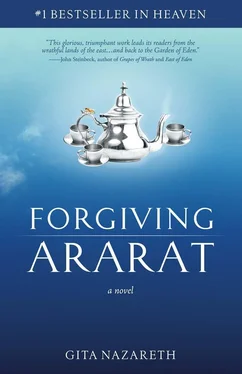Karen yawned and rubbed her eyes. “They’ve been questioning me for two days. I haven’t gotten any sleep.”
“Questioning you for two days?” I said, alarmed. “Didn’t they tell you that you had the right to a lawyer?”
“Yes,” she said, “but I told them I didn’t think I needed one.”
“What?” I said, indignantly, more than a little cranky myself from having been awoken in the middle of the night to travel from Pennsylvania to Kansas. “They’re charging you with treason and you didn’t think you needed a lawyer? Why did you bother calling me then?”
“Please don’t yell at me,” Karen said.
I took a deep breath. “I’m sorry,” I said. “It’s just that it makes it so much harder to defend you if you’ve been talking to them for two days already. Did you confess to anything?”
“Of course not…at least not that I’m aware of.”
“That’s exactly my point,” I said. “Two days with no sleep, who knows what they had you saying. No more talking, okay?”
“Okay, no more talking.”
“Good, now tell me what happened.”
She looked at me and then, fidgeting with her fingers, looked away. She was broken and ashamed. I had never seen her this way before.
“I can’t help you unless you talk to me, Karen.”
“I know.”
I sat quietly, waiting, but she wouldn’t speak. “Okay,” I said, finally, “I’ll tell you what. Let me tell you something I’ve never told anybody before, something I did wrong.”
“You’ve never done anything wrong,” Karen said.
“Yes, I have,” I said. I tugged on the empty right sleeve of my suit-the same black silk suit I was wearing when I arrived in Shemaya; I wore it that day because I knew I would need all the confidence I could get to meet the U.S. Attorney. “Do you see this?” I said, showing her the empty sleeve; then I proceeded to tell her everything about how I had lost my arm, including my perjured testimony during the trial. When I finished, she smiled gratefully and compassionately-like a priest.
“You were only a child,” she said, softly. “And you’ve already been forgiven. Do you know that?”
“Yes,” I said, “I know. And you’ve already been forgiven for whatever you’ve done too. Do you know that?”
She smiled again and wiped her eyes. “Yes, I guess I do.”
“Then tell me what happened.”
“Okay,” she said. She summoned her strength. “Well, since you’re my lawyer, I guess I can tell you…I’m a chaplain to the missileers.”
“The who?”
“The missileers-the airmen who man the nuclear missile silos; you know, the ones who will launch the ICBMs to end the world when given the command?”
“Wow,” I said, impressed, “I guess I thought you were just an ordinary base chaplain somewhere ministering to fighter pilots and their families or something.”
“I wasn’t allowed to tell anybody what I really do,” she said. “I actually requested this duty after I passed Officer Training School. They stationed me at Minot Air Force Base in North Dakota, one of the few remaining bases that still has Minuteman nuclear missiles on alert.”
“Interesting,” I said. “Okay, so what happened?”
“I told them launching nuclear missiles was wrong and they should refuse to do it if they’re ever ordered to.”
“You mean ‘wrong’ as in wrong unless we’re attacked first?” I asked.
“No,” Karen said, “even in retaliation.”
I was surprised. “So if the Russians or some rouge nation fires nuclear missiles at the United States, we’re not supposed to respond?”
“We’re supposed to forgive. We’re not supposed to resist violence with violence.”
“But that’s what the military does, Karen,” I said. “They resist violence with violence; that’s their line of work, it’s their entire reason for being. Why did you become a military chaplain if you don’t agree with what they do?”
Karen looked annoyed. “Would you ask why somebody became a doctor if they didn’t agree with human sickness and disease? We go where we’re needed most and can do the most good. Doctors work in hospitals because that’s where the sick people are. Nobody needs to learn about non-violence and forgiveness more than the military-and nobody in the military needs to learn about it more than the people who launch weapons that can destroy the world.”
I was stunned-it was the crayfish trials all over again. “That’s all very nice,” I said, “but the best way of deterring a nuclear attack is to make sure our enemies understand they’ll suffer the same fate if they ever try it.”
“But if we’re attacked,” Karen argued, “then, by definition, nuclear deterrence will have failed, so why bother to retaliate?”
“I don’t think I follow you,” I said.
“Let’s say we’re attacked by nuclear weapons this afternoon,” Karen said. “If that happens, it would be despite our threat of retaliation and mutually assured destruction. In other words, our threat of retaliation didn’t work-it didn’t deter the attack.”
“I guess so…”
“So if it didn’t deter the attack, then retaliating would be risking the destruction of the world to carry out an already failed strategy. It would be both illogical and immoral.”
“Look,” I said, now annoyed myself, “you’ve obviously given this more thought than I have. I’m not here to debate nuclear strategy; I’m here to defend you against a charge of treason. There’s a right to free speech in this country, a right we protect, by the way, with nuclear missiles-and it says you can say anything you want regardless of whether others agree, so I still don’t understand what you did wrong and why you’re here. Telling missileers not to launch their missiles might be a breach of your duties as an Air Force officer, but it’s not treason. You’re not in the chain of command as a chaplain; the most they can do about it is give you a dishonorable discharge.”
“There’s more to it than that,” Karen said. “I went down into one of the missile silos.”
“Did you break in?”
“No, one of the guys I’m friends with, Sam-I mean Captain Huggler, one of the missileers-let me go with him and Brian, Captain Kurtz, during their shift in the MAF.”
“What does that mean, MAF?”
“Missile Alert Facility, that’s what they call the underground launch control capsules inside the missile silos. Each MAF controls ten Minuteman missiles.”
“Was he allowed to bring you along?”
“He got special permission. They’re normally two person crews and they stay underground for twenty-four hours, but they’d been studying whether three person crews spelling each other over longer shifts would work better, so having me along wasn’t that unusual. I have the necessary clearance because I talk to them. They’re under a lot of stress, you know, sitting for days on end with their fingers on the button; they’ve got questions and they need somebody to talk to.”
“I can imagine,” I said, “but that’s not treason either.”
Karen held her eyes on me. “They went on alert while we were down there. A satellite picked up what appeared to be two North Korean ICBMs. Sam and Brian said it was probably just a false alarm due to a sunspot or something, but it might be the real thing and they had to be ready to launch their missiles within five minutes.”
“Did they ask you to leave?”
“Not right away. Since I was an officer with clearance and it was probably just a false alarm, they said I could stay.”
“Then what happened?”
“It was totally surreal. The MAF capsules are suspended on huge shock absorbers in case of a nuclear blast, like an egg yolk inside an egg; the entire thing started rumbling and shaking. Sam and Brian explained that this was normal and caused by the huge steel blast doors over the missiles sliding open. We could see it on the closed circuit monitors. Within seconds, the tips of the missiles were pointing toward the sky.”
Читать дальше












